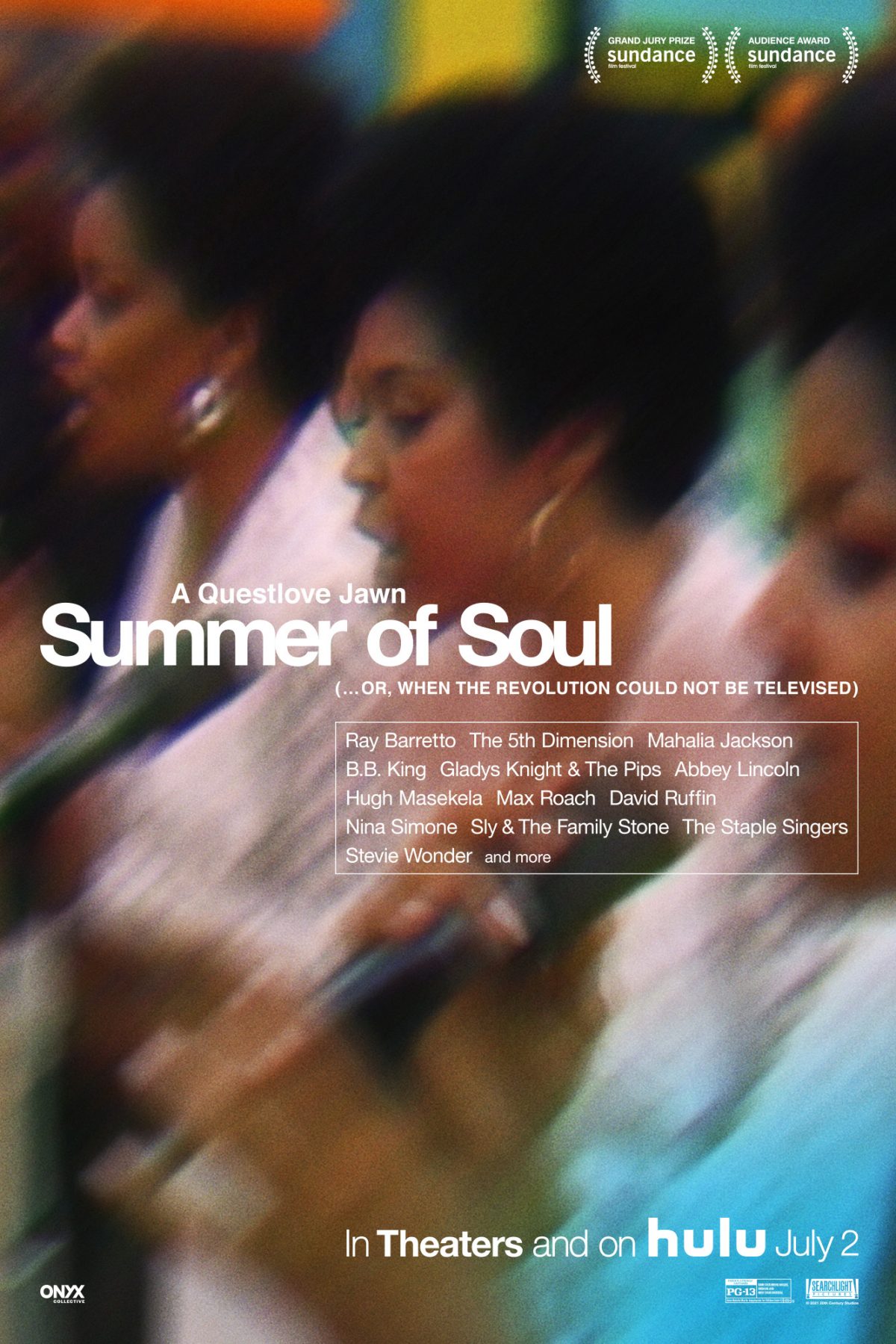
When celebrities attempt to defy artistic boundaries it can result in a wide variety of successes and failures. Scrutiny from critics is to be expected, especially when the jump is as wide as a music artist becoming a film director. Prince, Madonna, and Bob Dylan all tried their hands at narrative features, with little success. David Byrne, RZA, and Ice Cube made more convincing work, but none could dare come close to the recent tantalizing success of Roots drummer and frontman Ahmir “Questlove” Thompson and his directorial debut, the documentary Summer of Soul (…Or, When the Revolution Could Not Be Televised).
The film, which was released on Hulu and in theatres on July 2nd, chronicles the 1969 Harlem Cultural Festival, a series of concerts in Mount Morris Park (currently known as Marcus Garvey Park) at which a number of prominent artists from the time performed, including Nina Simone, Sly and the Family Stone, BB King, Stevie Wonder, Gladys Knight, and many others. Previously touted unfairly as the “Black Woodstock” from which it shared its summer of 1969 date, the event was curiously lost to history and fell into obscurity until 50 years later, where the footage has been remastered and edited into a powerful celebration of Black Pride, cultural diversity and significance of Harlem.
Questlove’s film is incredibly successful at weaving the remarkable restored concert footage with an explanation of the contemporary political situation, particularly as it pertained to the communities in the greater Harlem area. The film opens with a mesmerizing Stevie Wonder drum solo that is interpolated with scenes of riots and protests, Black Panthers, prominent activists, artists, and various concert-goers. The introduction serves as an overview and synopsis of the film to come. Questlove’s own musicality is on show in his direction, as the film has an expert sense of pace and timing. The beginning impresses in the scope, spectacle, and significance, and then transitions seamlessly into a reminder of the politics of the time. It examines Martin Luther King Jr’s death, the rise of Jessie Jackson, and a gut-wrenching performance of Take My Hand, Precious Lord by the legendary Mahalia Jackson and a then 30-year-old Mavis Staples.

Questlove earns the slower moments of the film by balancing lulls with energetic performances by Sly and the Family Stone and Gladys Knight & the Pips. Questlove’s voice is not heard until the final interview with a concert-goer, but his infectious reverence for these musical icons is obvious and helps drive the film with passion and grace to its conclusion. It is obvious to the viewer that the festival was a cultural moment that deserves to be immortalized in time.
The film was first shown at the 2021 Sundance Film Festival, where it was met with widespread critical acclaim, winning both the Grand Jury Prize and the Audience Award for Documentary Features. It currently sits as one of the best-reviewed films of the year and looks to be an excellent addition to Questlove’s artistic catalog, remarkable for a directorial debut. Perhaps it is the perfect marriage of artist and material that makes the film so successful or maybe it’s the awe-inspiring line-up of iconic artists so cleverly contextualized with righteous political anger that burns to this day. Either way, this film is not to be missed.



